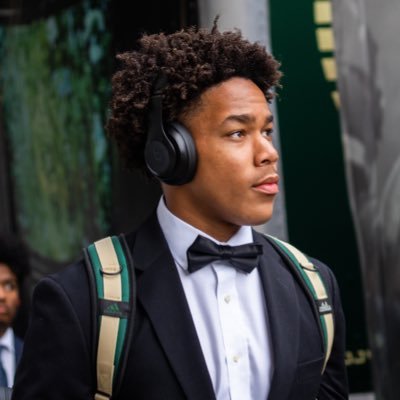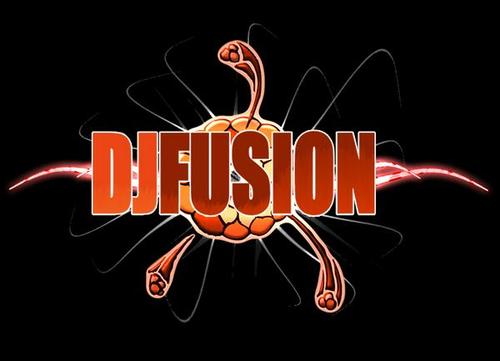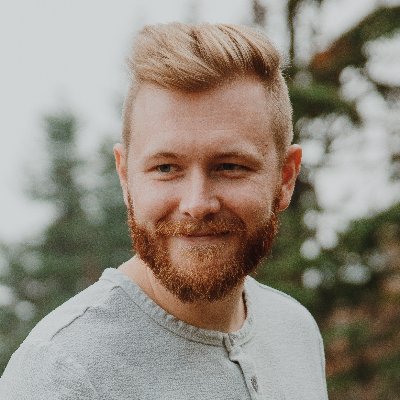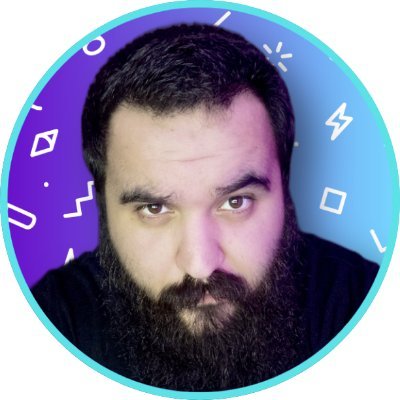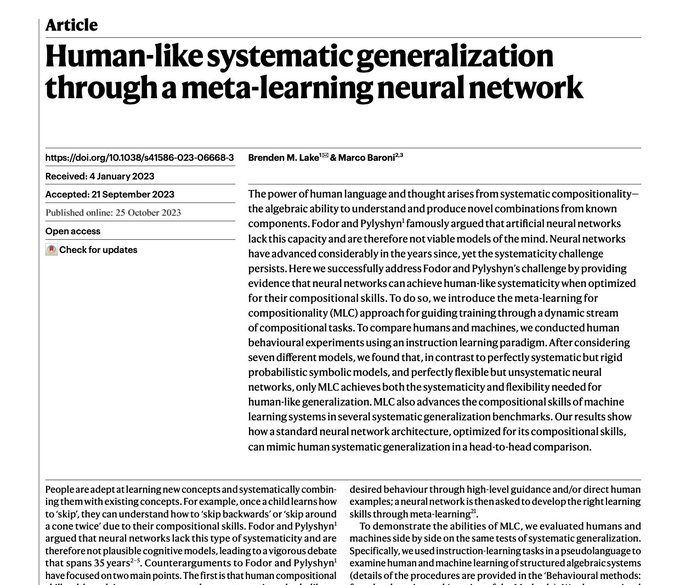
Brenden Lake
@LakeBrenden
Followers
7,078
Following
221
Media
76
Statuses
856
Associate Professor of Psychology and Data Science @ NYU. Co-Director of the NYU Minds, Brains, and Machines Initiative. Posts are my views only
Manhattan, NY
Joined June 2018
Don't wanna be here?
Send us removal request.
Explore trending content on Musk Viewer
taylor
• 321218 Tweets
#MiamiTSTheErasTour
• 146940 Tweets
Jesus is Lord
• 145548 Tweets
River
• 118919 Tweets
#SmackDown
• 78377 Tweets
Liberty
• 61530 Tweets
Game 5
• 58499 Tweets
自民党本部
• 51675 Tweets
Botafogo
• 39806 Tweets
Duke
• 37232 Tweets
FLORENCE
• 31682 Tweets
Vélez
• 30898 Tweets
Lynx
• 25833 Tweets
Cruzeiro
• 21017 Tweets
Stanton
• 20855 Tweets
Bahia
• 19027 Tweets
Florida State
• 18876 Tweets
Rep TV
• 14948 Tweets
#箱根駅伝予選会
• 13463 Tweets
Patrick Bday Song Teaser
• 12594 Tweets
MCMG
• 12269 Tweets
Vizeu
• 11505 Tweets
Empowering Lives
• 11432 Tweets
Borja
• 10786 Tweets
WANG YIBO AT THE 1ST GT RACE
• 10613 Tweets
Criciúma
• 10039 Tweets
Last Seen Profiles
We train a self-supervised net "through the eyes" of one baby across 2 years of development. At
#NeurIPS2020
, Emin Orhan shows how high-level visual representations emerge.
Paper & pre-trained net
Poster Thurs Noon EST
7
128
827
Children use the mutual exclusivity bias to learn new words, while standard deep nets show the opposite bias, often hindering learning.
@gandhikanishk
introduces this challenge for ML at
#NeurIPS2020
.
Paper
Poster Thu Noon EST
3
60
466
Children use the mutual exclusivity (ME) bias to learn new words, while standard neural nets show the opposite bias, hindering learning in common scenarios. New preprint from
@gandhikanishk
introduces ME as a challenge for neural networks
6
121
431
New few-shot learning challenge: people generalize compositionally from just a few examples, while powerful seq2seq models don't. We found clues to how people do it: they use 3 inductive biases that could be incorporated into models. w/
@tallinzen
& Baroni
5
81
284
Published in Science today,
@wkvong
reports a dream experiment: he trained a multi-modal AI model from scratch on a subset of one child's experiences, as captured by headcam video. Shows how grounded word learning is possible in natural settings, as discussed in his thread:
3
50
241
It learns on its own "just like a human," who plays with a cube for 13,000 years while following the instructions of a symbolic solver
@washingtonpost
3
23
236
This is an exciting problem that requires both high-level reasoning and low-level control, but the network doesn't "learn to solve a Rubik's cube," -- it learns to manipulate a Rubik's cube. The robot uses a symbolic solver to create a sequence of sub-goals. (1/2)
5
46
228
GPT3 and people make that same gut errors on reasoning tests like "A bat and a ball cost $1.10..." Inspired by how people can override their gut,
@Maxwell_Nye
shows how to augment a neural "System 1" with a symbolic "System 2", no extra training required
3
40
216
The Omniglot challenge: A 3-year progress report. There has been genuine progress on one-shot learning, but neural nets are far from human-level learning on Omniglot, a challenge that requires performing many tasks with a single model w/
@rsalakhu
Tenenbaum
0
46
203
Linda Smith, one of the scientists I most admire, writes in Nature "News and Views" about
@wkvong
's work. Linda's conjecture: "problems of data-greedy AI could be mitigated by determining and then exploiting the natural statistics of infant experience"
1
44
188
New neuro-symbolic model can learn explicit rule systems from just a few examples. It combines a neural "proposer" and a symbolic "checker" to make both fast and robust inferences. The model can solve SCAN and learn number words. From
@Maxwell_Nye
0
36
172
I am thrilled to be named as one of MIT Technology Review's Innovators Under 35! Wonderful recognition of all the exciting research we are doing in the lab.
@techreview
#35InnovatorsUnder35
6
11
155
How can we build machines that understand words as people do? Models must look beyond patterns in text to secure a more grounded, conceptual foundation for word meaning, with links to beliefs and desires while supporting flexible composition. w/
@glmurphy39
3
20
142
Linda Smith is always inspiring and gave amazing plenary at
#NeurIPS2023
, “AI would do better for itself if it studied the structure of the data” that children receive.
4
20
109
New
#ICLR2021
paper on Generative Neuro-Symbolic modeling: Learning compositional and causal generative programs from raw data, using powerful neural sub-routines. The best model yet on the Omniglot Challenge. By
@ReubenFeinman
. Poster today (paper below)
2
16
136
Now out in Cognition,
@yanlisagezhou
models how people learn compositional visual concepts through both Bayesian program induction and meta-learning. There are two stories in her work... (thread below)
3
27
134
Out today in Cognition. My favorite finding: a net trained from scratch on one child's visual input (i.e., recent Science paper) shows beautiful categorical perception, e.g., emergent "above vs. below" relation category in model embeddings (left) for visual stimuli (right)
2
23
132
Progress in NLP has been striking, so
@glmurphy39
and I ask: Can recent models serve as psychological theories of word meaning? We propose 5 desiderata for building models that understand words more like people do. Now out at Psych Review (thread 1/7)
4
29
133
Deep nets are biased toward texture over shape, right? Well, the standard tests used in ML (left) differ quite a bit from those used in CogSci (right). In
#CogSci2022
paper,
@ARTartaglini
shows that many deep nets prefer shape when tested like kids
3
15
124
Self-supervised learning works well on vision+language data, but is it relevant to how children learn words?
@wkvong
considers 7 behavioral phenomena, finding recent algorithms capture many (and learn quickly), but fail when mutual exclusivity is required
2
21
119
Neural nets struggle with systematic generalizaton, but can be improved through "meta seq2seq learning": training on many seq2seq problems to acquire the compositional skills needed for solving new problems. Come by
#NeurIPS2019
poster 178 Thu. at 10:45
1
20
120
Reviewer
#2
: "The paper is written well with a grammatical touch." I am glad we added that sprinkling of grammatical sentences :)
0
5
117
People utilize causal understanding for classification, yet deep nets often fail to do so. This preprint shows that people can do few-shot learning of recursive causal processes, in ways consistent with an ideal Bayesian program learner. w/
@spiantado
0
23
106
It's tempting to use folk-psych terms with LLMs (beliefs, intentions, etc.) because, until now, we have only had human-like conversations with humans. But this is a mistake. LLMs are role-players more than coherent agents. See this great paper
@mpshanahan
1
17
106
Honored to be a part of this wonderful unit at NYU. Truly a pioneering interdisciplinary effort
0
3
89
New "Grounded SCAN" benchmark covers 7 types of systematic generalization e.g. few-shot learning of "cautiously" ("walk to the red circle cautiously" requires looking both ways before moving). Baseline is just 5% correct after 50 examples. From
@LauraRuis7
1
13
86
Excellent story in Scientific American by
@lauren_leffer
describing Wai Keen's work, with comments from some of my favorite scientists: Linda Smith, Jess Sullivan, and
@EvaPortelance
0
14
85
The new
@ICEgov
policy is appalling. International students enrich our classes, universities, and communities. All students are welcome here, and this cruel policy can't change this.
3
12
87
NYU will offer a new undergraduate major in Data Science -- the interdisciplinary study of extracting knowledge from data. It's an opportunity to study computational approaches to intelligence and learning, with applications to the sciences and society. An exciting development!
The
@NYUDataScience
undergraduate major has been approved by
@NYSEDNews
! We have already begun to offer undergraduate courses for those looking to minor. You can check out our course selection on the
@NyuAlbert
"Public Course Search."
4
10
51
0
14
85
It’s misleading to lump together nature and nurture as just “experience.” The extent to which capabilities are built-in vs. learned is foundational in cognitive science and cognitive development, because it suggests different representations, architectures, algorithms, etc. (1/2)
2
10
83
Exciting new initiative at NYU focused on understanding and engineering intelligence.
We’re excited to announce the launch of the Minds, Brains, and Machines Initiative! The project, led by
@lakebrenden
&
@todd_gureckis
, seeks to promote research at the intersection of human & machine intelligence. More information at
5
41
242
0
6
81
Kudos to OpenAI for releasing
#OpenAIFive
to the public for testing. Despite 45,000 years worth of training for the bot (a quarter of human history), the human community is starting to win after a few hours. A clear victory for humans?
4
14
79
Recurrent neural nets have trouble combining familiar words in new ways, such as inferring the meaning of "around right" from the meaning of "around" and "right."
@JoaoLoula
's new paper is on arXiv, with Marco Baroni and me
0
22
80
"Systematic generalization" and "compositionality" were buzzwords at
#NeurIPS2019
. At the meta-learning workshop, I discussed compositionality in human language and thought, and how understanding it would inform machine intelligence. Video begins 26:35

Sebastian Flennerhag · Contributed Talk 1: Meta-Learning with Warped Gradient Descent
slideslive.com
1
12
75
We re-released Omniglot with the drawing demonstrations in a more accessible format. Human learners use this compositional and causal structure. We hope models will use it too, as it's the only known way to get human-level learning w/
@rsalakhu
Tenenbaum
1
19
78
Busy day for the lab at
#NeurIPS2020
! We hope you will stop by our posters in Session 6 (Thurs noon EST), and hear about our work at the interface of cognitive science and AI. We would love to discuss our research with you! Poster links in thread.
2
7
77
So glad to finally get the lab together in person this afternoon! I introduced our newest member, developmental expert Logan Kwan Lake! (the little guy on the left). Also bittersweet since we are saying goodbye to
@gandhikanishk
, who is starting his PhD at Stanford next year.
4
3
75
People can ask interesting questions without much effort. This model treats questions as compositional, symbolic programs and uses rapid neural synthesis. It also learns to ask good questions without supervised examples.
#CogSci2021
paper from Ziyun Wang
2
11
75
Wow, that's my wife up there on the billboards in Times Square!! New York, New York.. If you can make it there, you’ll make it anywhere. Feeling proud of
@tammykwan
and her company
@CognitiveToyBox
3
2
73
The source code for meta seq2seq learning is now available through
@facebookai
. You can reproduce the experiments from my
#NeurIPS2019
paper, or run memory-based meta learning on other seq2seq problems.
Neural nets struggle with systematic generalizaton, but can be improved through "meta seq2seq learning": training on many seq2seq problems to acquire the compositional skills needed for solving new problems. Come by
#NeurIPS2019
poster 178 Thu. at 10:45
1
20
120
0
17
67
Paper with
@spiantado
is now out in
@CompBrainBeh
. We find that people can learn recursive causal processes from just a few examples, consistent with an ideal Bayesian program learner.
new in
@CompBrainBeh
: a Bayesian program learning model that searches the space of programs for the best explanation of the observations that explains how people learn concepts from only few examples
0
2
19
0
12
71
New benchmark for few-shot learning of compositional concepts (e.g., "all objects are blue and have equal size"), and new difficulty metric for systematic generalization splits. From
@rama_vedantam
#ICML2021
paper
poster today
0
12
68
@IntuitMachine
I am glad you are excited too, and I like a lot about your summary, especially the importance of integrating cogsci and ML. But come on, this is *not* confirmation that AGI is here!
2
1
68
Incorporating cognitive ingredients can strengthen deep RL: adding object masks to Frostbite leads to higher scores and better generalization to novel test scenarios. An agent surrounded by crabs now knows it's toast! New
#CogSci2020
paper from
@guyd33
0
9
63
My lab at NYU has a new website! Thank you
@ReubenFeinman
for the design. Check out the research we are doing and see the "Apply" tab if you would like to join us.
Human & machine learning lab
1
9
63
@AndrewLampinen
Thanks for the comments Andrew! Indeed, I am a fan of your papers below. Yes, my perspective on compositionality is changing.. I did think it needed to be built-in and I don't believe that anymore.
2
0
61
GPT3 and people make similar gut errors on reasoning tests like "A bat and a ball cost $1.10.." Inspired by how people can override their gut,
@Maxwell_Nye
shows how to augment a neural "System 1" with a symbolic "System 2" See
#NeurIPS2021
poster tonight 7:30pm EST (paper below)
1
2
60
Traditional categorization models use highly abstract stimulus representations. Do classic models like ALCOVE "just work" with raw images if you add a CNN front-end? Not really! Hear lessons learned from
@ARTartaglini
#CogSci2021
poster 3-A-4 today
Paper
0
9
60
Well-balanced Nature news feature about the current challenges of evaluating intelligence in LLMs, featuring ConceptArc and quotes from
@MelMitchell1
,
@TomerUllman
,
@sleepinyourhat
, me, and others
1
10
60
"The perspective of a child could help AI learn language—and tell us more about how humans manage the same feat." The Atlantic reports on recent studies from our lab, with comments from baby headcam pioneers Linda Smith,
@Chen_Yu_CY
,
@mcxfrank
Capturing the everyday experience of a small cohort of babies could help scientists train AI to learn language more like a toddler does.
@sarahzhang
reports:
2
6
16
3
9
57
Reminder that NYU is hiring an Assistant Prof. of Psychology and Data Science this year. Applications due in a little over 2 weeks!
1
20
56
A vision model trained through a baby's eyes explains results from infant relation categorization: above/below is easier than between, relations w/ consistent objects are easier, etc. Many relational nets also tested. New
#CogSci2021
paper from
@guyd33
0
12
56
In just a minute,
@wkvong
is being interviewed on NPR Science Friday, about training models through the eyes and ears of a child. listen in here:
Also, see the NPR link here:
2
12
57
I'm looking forward to joining
@ev_fedorenko
and
@MelMitchell1
at this event! I will be speaking about my recent paper with Greg Murphy on "Word meaning in minds and machines" (). Event registration is open to the public.
2
10
56
Our Omniglot progress report is now out! Neural nets have made important progress on Omniglot, but they are still far from human-like concept learning. The renewed challenge is to develop models that can perform many tasks together. w/
@rsalakhu
Tenenbaum
1
10
54
Video interview with
@wkvong
and I regarding his new paper, training a neural net through a child's eyes and ears
2
7
52
Scientific American article describing our meta-learning for compositionality approach and its implications. Excellent (and measured) science journalism by
@lauren_leffer
, with thoughts from
@rsalakhu
, Armando Solar-Lezama, and Paul Smolensky
2
5
49
We're inviting applications for our Faculty Fellows position at the Center for Data Science
@NYUDataScience
. A unique, independent, interdisciplinary postdoctoral fellowship -- check it out! (Due Dec. 23)
0
29
48
Love this well-balanced article (
@MelMitchell1
). This sums it up well: "Humans, unlike machines, seem to have a strong innate drive for [conceptual] understanding... requiring few data, minimal or parsimonious models, ... and strong mechanistic intuition"
2
8
47
"The Sweet Lesson of the history of AI is that, while finding the right inductive biases is hard, doing so enables massive progress on otherwise intractable problems." Well-said... from
@shimon8282
response to Rich Sutton's new blog post
0
3
47
More commentary on Emin's recent work showing "the computational plausibility that children can acquire sophisticated visual representations from natural input data without [strong] biases", now in TICS from Lei Yuan
0
9
45
Looking forward to
#NeurIPS2023
in-person, for the first time in a few years! ✈️ If you're interested in chatting about research, collaborations, or graduate school, I'd be glad to meet you. You can send me a DM or email.
2
2
44
New work at
#NeurIPS2021
led by Kanishk as a collaboration between our lab and
@LDM_NYU
. Humans are adept at reasoning about other agents, even from infancy, but this ability is underexplored in AI today. Take up the BIB challenge to help move machine intelligence forward!
Before their first birthdays, infants intuitively reason about the goals, preferences, and actions of other agents. Can machines achieve such generalizable, flexible reasoning about agents? To find out, we present the Baby Intuitions Benchmark (BIB)
@NeurIPSConf
#NeurIPS2021
1/6
1
28
167
0
4
44
Human concepts are rich in structure and statistics, yet models rarely capture both.
@ReubenFeinman
uses neuro-symbolic models to generate new concepts with complex compositional, causal, and statistical structure. Poster P-2-361 2morrow. Video
#cogsci2020
0
2
42
This work was possible because of the *amazing* SAYCam dataset of baby headcam videos. Please check out the SAYCam paper here from Jess Sullivan, Michelle Mei,
@AmyPerfors
@ewojcik
@mcxfrank
(2/2)
0
1
39
Training on more realistic input is central to understanding what today's ML approaches can tell us about how children develop and acquire language. Can't wait to dive in to these (31!) paper, wow, what a turn out for the challenge!
0
3
40
Multi-modal nets are popular, but are they good psychological models?
@wkvong
tests them on a range of behavioral findings (7 Exps!). Surprisingly they can reach human-level accuracy from one pass through the stimuli! But they stumble on mutual exclusivity
1
8
39






